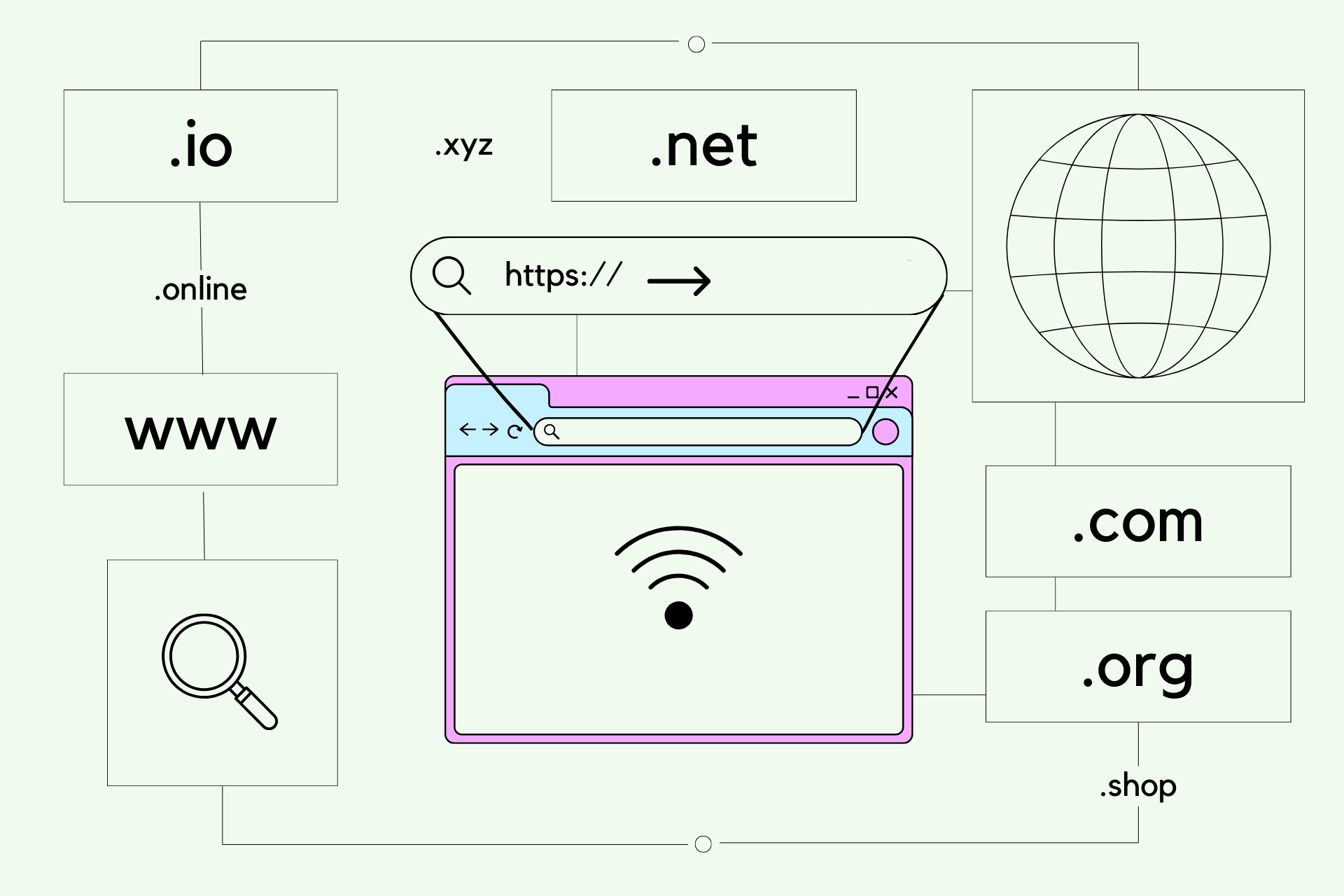In the sprawling expanse of the internet, where millions of websites beckon users with information, products, and services, domain names act as the digital addresses that guide us through this virtual landscape. Beyond their fundamental role as navigational tools, domain names also play a crucial part in defining the identity, purpose, and even the trustworthiness of a website. In this comprehensive exploration, we will unravel the intricate world of domain names, shedding light on the diverse types and their implications for online entities.
The Classics: .com, .org, .net
.com: The Universal Identifier
The crown jewel of domain extensions, “.com” has become synonymous with the internet itself. Originally intended to denote commercial entities, “.com” has transcended its initial purpose, evolving into a versatile TLD suitable for a broad spectrum of websites. Businesses of all sizes, bloggers, and individuals seeking a widely recognized and trusted online presence often opt for a “.com” domain.
.org: Building Trust in the Digital Realm
Short for organization, “.org” has traditionally been associated with non-profit entities, community groups, and various organizations with a mission beyond profit. Choosing a “.org” domain imparts a sense of credibility and trust, making it an ideal choice for NGOs, charities, and educational institutions.
.net: Networking and Beyond
Originally designated for network-related websites, “.net” has expanded its reach and is now utilized by a variety of entities. It is commonly associated with technology, infrastructure, and networking services, making it a go-to choice for businesses in these domains.
Specialized TLDs: Signifying Purpose and Authority
.gov: The Stamp of Officiality
Restricted to government entities in the United States, “.gov” is a powerful indicator of an official government website. This exclusive TLD instills confidence in users seeking authoritative information directly from government sources.
.edu: The Academic Emblem
Reserved for educational institutions, “.edu” serves as a symbol of credibility in the academic realm. Universities, colleges, and other educational organizations opt for this TLD to convey their commitment to scholarly pursuits.
.mil: A Digital Barracks
Reserved exclusively for the United States Department of Defense and its various branches, “.mil” denotes military-related websites. This TLD is a clear marker of the secure and official nature of the content housed within.
Country Code TLDs (ccTLDs): Bridging the Global and the Local
Country Code Top-Level Domains, or ccTLDs, are country-specific domain extensions that enable websites to signal their geographical relevance.
.uk: United Kingdom’s Digital Identity
“.uk” is the ccTLD for the United Kingdom, offering businesses and individuals the opportunity to establish a local online presence. This TLD is particularly advantageous for entities targeting a British audience.
.ca: Canada’s Digital Frontier
“.ca” serves as the ccTLD for Canada, presenting a distinctive digital identity for websites catering to a Canadian audience. It is a popular choice for businesses and organizations with a focus on the Canadian market.
.au: Australia’s Online Beacon
“.au” is Australia’s ccTLD, providing a digital home for websites aiming to connect with an Australian audience. It is commonly used by businesses, educational institutions, and individuals with ties to Australia.
New Generic TLDs: Unleashing Creativity and Specificity
In recent years, the domain landscape has expanded significantly with the introduction of new generic TLDs, providing website owners with innovative and industry-specific options.
.app: Functionality and Security
Designed specifically for mobile apps and application developers, “.app” emphasizes functionality and security. Websites with this TLD are automatically secured with HTTPS, making it an ideal choice for those prioritizing user data protection.
.blog: A Platform for Expression
Tailored for bloggers and content creators, “.blog” is a dynamic TLD that conveys a focus on regular content updates and storytelling. It provides a clear signal that the website is a hub for engaging and informative blog posts.

Leave a Reply